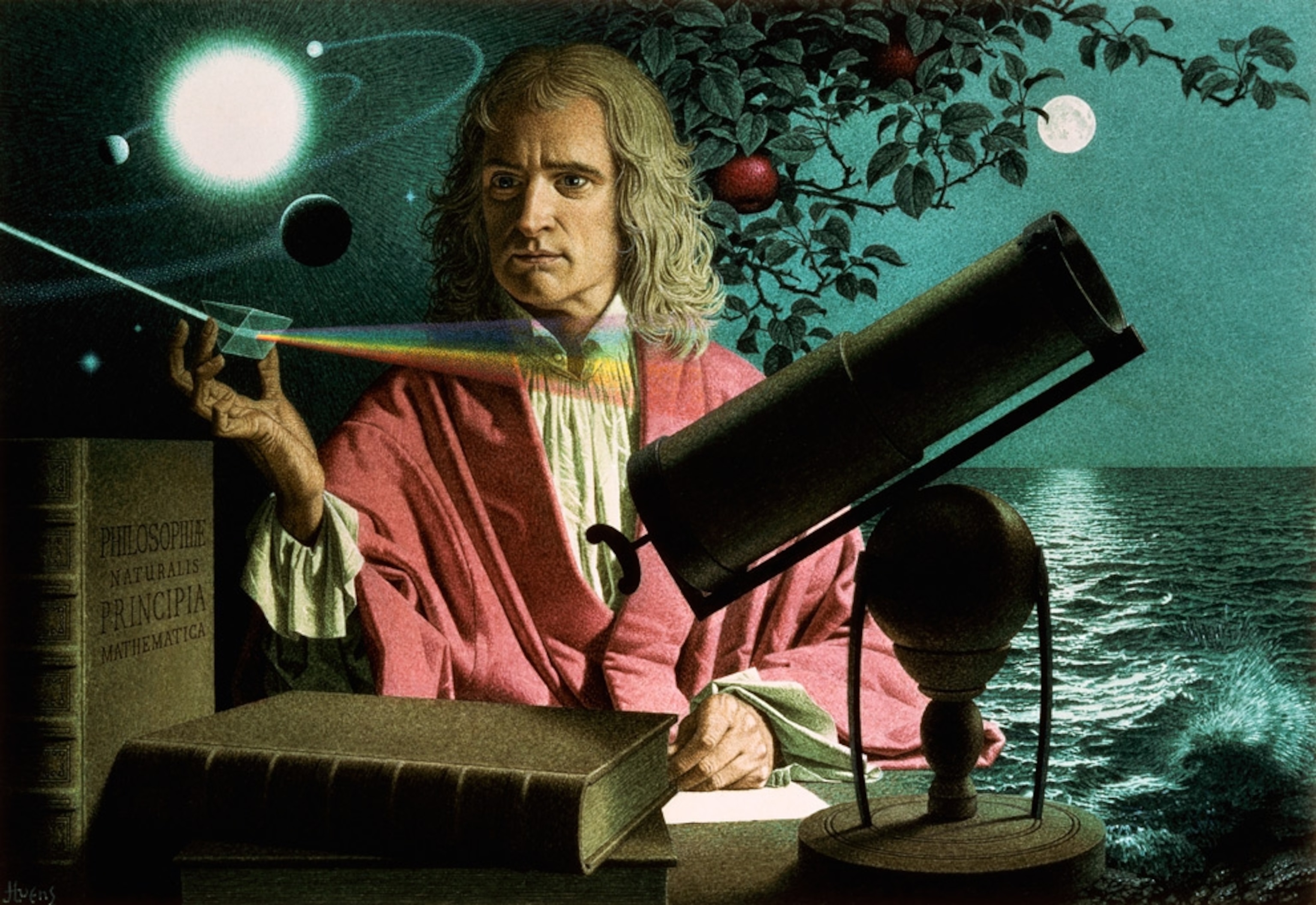Isaac Newton Born 1642 -1727
English researcher, space expert, , mathematician
Brought into the world in 1642 - Died in 1727
Sir Isaac Newton when he was a kid, was more keen on making mechanical* gadgets than in considering. He made a windmill which could crush wheat and corn, and he made a water clock and a sundial. His educators considered him a helpless understudy.
He needed to set off for college, yet he didn't have the means to go. He selected at the least section. In this position he needed to serve different understudies by getting things done for them. He even ate the extras of their dinners, yet he would effectively get a chance to learn. In any event, when he was in school, he was not remarkable and gotten no honors.
At the point when the college shut down as a result of the plague, he returned home and kept on examining all alone. He had a journal with 140 clear pages and he started to fill them with notes as he read and tested.
His honest interest drove him to make some vital disclosures when he turned into a man. Inside a time of a year and half he made three incredible disclosures.
Gravity....
One day when he was savoring tea the nursery, he saw an apple tumble to the ground. He began pondering why it fell, lastly reasoned that a similar power which made the apple fall additionally kept the moon in circle around the earth. This equivalent power, gravity,* likewise kept the planets in circle around the sun.
The apple episode prompted his fundamental laws of movement: An item moving will in general stay moving except if an outside power stops it, an article moves in an orderly fashion except if some power redirects it; and for each activity, there is an equivalent and inverse response.
An item moving will in general stay moving except if an outside power stops it; an article moves in an orderly fashion except if some power redirects it
These are the two pieces of the primary law, as they are both portraying the way that except if a (resultant) power acts, the movement of an article stays as before (for example same speed and same course). This additionally incorporates the way that an article very still doesn't unexpectedly begin to move except if made to do as such by a power.
The subsequent law is regarding HOW the power influences the movement. A moderately little power could make, say, a tennis ball speed up a ton (for example altering its course totally), yet couldn't make the movement of, for instance, a truck change definitely. This is on the grounds that the mass of the articles are totally different. Also, if two articles had a similar mass, a Large power would change the movement a great deal, where as a little power not really. So the adjustment of movement relies upon the size of the power and the mass of the article.
This power is regularly composed as Force = mass x speed increase.
He didn't distribute his discoveries for quite a while. Edmund Halley, an astronomer,* encouraged him to distribute the things he had learned.
His subsequent revelation was about light and the properties of light. He went through months in an obscured room doing tests. He passed a light emission through a crystal and found that the light emission was separated into various shadings. His decision: something that seems green, like grass, looks green since it mirrors the go-ahead in the sun and ingests the vast majority of different shadings.
A portion of his testing was risky. He would check out the sun, (something his mom had told him never to do), and he would gaze at the impression of the sun in a mirror until he lost his sight. Then, at that point, he shut himself up in a dim space for a very long time until his vision at last returned.
He likewise made a reflecting telescope to use in his investigations.
Newton's third extraordinary disclosure was in the field of math when he fostered a sort of math we call calculus.* He was only 24 years of age at that point. Notwithstanding, he didn't distribute his discoveries for around 20 years, and by then another person had sorted out exactly the same thing. Newton said the man had taken his thought. There was a harsh discussion over what man made the disclosure. Newton got his companions to say he was the one. In any case, after 200 years, it was concluded that the two men had arrived at a similar resolution without assistance from the other one.
When he was in his mid 50's he had destroyed himself and experienced weariness. Some were even apprehensive he may have mercury harming brought about by his tests.
In 1696 he turned into the top of the mint where the coins were made. There was a ton of counterfeiting.* People were making their own coins. So the mint began supplanting every one of the coins with new coins. Newton would spruce up in masks so nobody would know him, and he would go out in the city of London to attempt to get the forgers. He was fruitful in catching individuals who were mindful.
Sir Isaac Newton won't ever wed.
It is said he was extremely liberal with his nieces and nephews and with the researchers who helped him in his work.




0 Comments